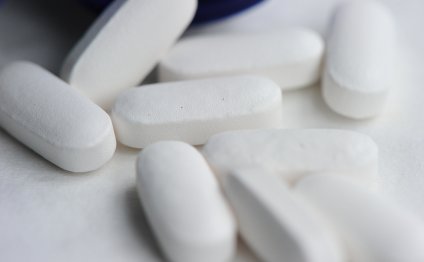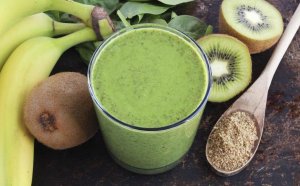
Ibuprofen after workout
In previous Get-Fit Guy episodes, I’ve discussed natural remedies for soreness, how to structure your post-workout activities to lower soreness levels, and some of the best ways to bounce back quickly from a workout.
But it is still extremely common for fitness enthusiasts to take ibuprofen, Advil, or other non-steroidal anti-inflammatory medications (NSAIDs) prior to or during physical activity in order to push through soreness, pain, or injury.
So in today’s episode, you’re going to learn whether taking anti-inflammatories during physical activity is helpful or harmful.
How Do NSAIDs Work?
In this most recent study, 9 healthy and fit men were studied on 4 different occasions:
- taking a standard dose of 400 mg ibuprofen twice prior to a bike workout
- cycling without the ibuprofen
- taking 400 mg ibuprofen twice at rest
- resting without ibuprofen intake
In each case, researchers measured small intestinal damage by monitoring the subjects’ plasma intestinal fatty acid binding protein (I-FABP). They also measured urinary excretion of special sugar probes, which can determine the amount of gastrointestinal permeability – a sign that the gut is becoming “leaky.”
So what did the researchers find?
While ibuprofen consumption and exercise both resulted in increased I-FABP levels (reflecting small intestinal injury), levels were higher after cycling with ibuprofen than after cycling without ibuprofen. In addition, gut permeability (“leakiness”) also increased, especially after cycling with ibuprofen—which reflected a loss of gut barrier integrity. In addition, the levels of intestinal injury from ibuprofen and gut barrier dysfunction were extremely well correlated.
Based on this study, it can be concluded that exercise slightly aggravates your small intestine, and ibuprofen turns this into a significantly riskier problem. I can’t sum it up any better than the researchers who concluded that “NSAID consumption by athletes is not harmless and should be discouraged.”
Should You Take NSAIDs Before a Marathon or Triathlon?
As mentioned earlier, other studies have been performed on NSAID use before or during exercise.
One study found that taking 400 mg ibuprofen 4 hours before exercise reduced soreness, but didn’t actually prevent muscle cell injury – which is concerning, since this means that the ibuprofen may mask pain, but at the same time, can lead to increased risk of injury as you push through muscle damage. In this study, researchers measured creatine kinase (CK), which is a protein that muscle cells release when they are injured.
Other studies have found that NSAID use during long events, such as a marathon or triathlon, actually decreases kidney function, which can lead to very dangerous issues, including a decreased ability to properly regulate your sodium and electrolyte status and your hydration levels. This becomes especially dangerous in the heat, in which there is already a great amount of stress on the kidneys, and this extra stress may create a high risk of long term kidney damage or kidney failure.
One of most eye-opening studies on ibuprofen use during exercise occurred in research performed during the Western States trail running race, which is a popular and grueling 100 mile race. In this study, runners were split into three groups: a group with no ibuprofen intake, a group taking 600 mg of ibuprofen one day before and on race day, and a group taking 1200 mg of ibuprofen one day before and on race day.
This study found that both of the ibuprofen groups had significantly higher levels of muscle damage, and this effect increased with higher amounts of ibuprofen intake. Ironically, fitness performance, post-workout soreness, and the subjects’ ratings of perceived exertion were not affected by taking ibuprofen – which means that A) ibuprofen did not help at all and B) ibuprofen caused greater inflammation and muscle damage.
When Should You Take Ibuprofen?
If you must temporarily shut down pain so that you can get through the day, NSAIDs can be a real lifesaver. For example, on a recent vacation, my wife was only able to enjoy herself by shutting down toothache pain with 1200 mg of ibuprofen.
However, if she would have decided to go do a triathlon, run 10 miles, or hit the gym for a few hours, I would have been very concerned about her potential for muscle and kidney damage, and I would have told her the same thing I’ll tell you: you shouldn’t use NSAIDs to allow you to push through pain during a workout. Instead, wait until you’re better, or find other options to decrease soreness. Check out my episode on How to Recover After a Workout.
If you have questions or comments about the effects of ibuprofen, Advil, or other NSAIDs on your body, join the conversation at
And check out my new book Get-Fit Guy’s Guide to Achieving Your Ideal Body for the ultimate resource to get your dream body fast!
INTERESTING VIDEO



Share this Post
Related posts
Banana after workout
You went to depth on every squat rep and pushed your reverse lunges to failure. Your quads are beat and your hamstrings burn…
Read MoreFood after Workouts
When it comes to fitness, there are certain universal questions that experts hear almost every day: How can I get the most…
Read More









